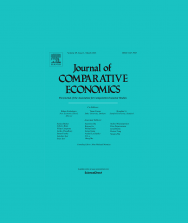
| Author(s) |
Eric BROUSSEAU Amanda MOREIRA ALVES Timothy YU-CHEONG YEUNG |
| Publication type | Research Paper |
| Reference | Journal of Comparative Economics, 2021 |
This paper studies the interactions between European Union institutions and the Member States with regard to state aid control. The mandate of the European Commission includes the maintenance and strengthening of economic integration, and as such it may discipline any Member States that undermine the single market. Relying on an original database covering all state aid applications with rulings between 2000 and 2017, we show that, on the one hand, the Commission tends to reject programs originating from countries that are resistant to EU integration, which is proxied by the transposition deficit.
On the other hand, when firms or national governments appeal the decisions made by the Commission, the reversal of the Commission's rejection decisions by the Court of Justice of the European Union is positively correlated with the transposition deficit.
This evidence suggests that while the Commission is biased against countries with greater resistance to integration, the Court corrects this bias since its mandate is to guarantee the rule of law in the EU system of governance. We argue that these revealed policy preferences are consistent with the assumption that these two bodies attempt to strengthen their legitimacy by making decisions in line with their mandates. Moreover, the interaction between these twin pursuits of legitimacy reinforces the overall legitimacy of the Union, suggesting another driver of evolution in an equilibrium approach of institutions.

























